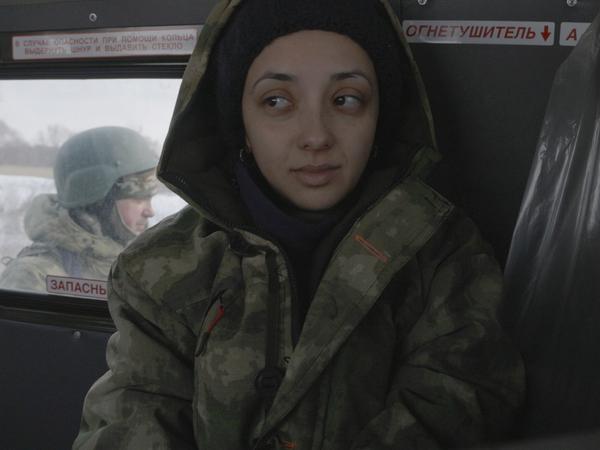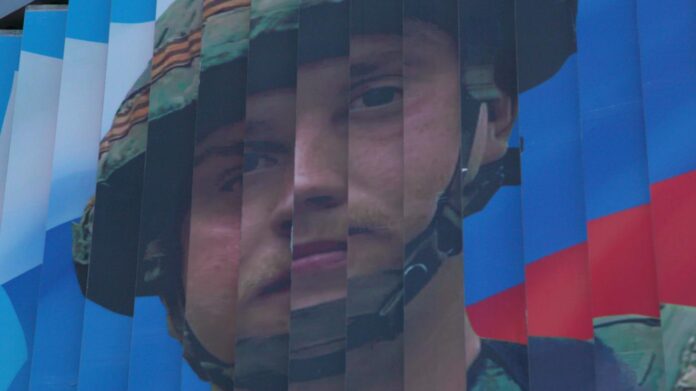The 20-year-old is polishing his boots and has heard nothing of war crimes. Comrades committing atrocities? The young Russian doesn’t want to believe it. He won’t survive his battalion’s first deployment to the front. The soldiers collect the bodies, mourn, cry, call the families. But it is a just war, says one who has had doubts until now. He shows a cell phone video in which, from a drone perspective, you can see an injured Russian soldier begging for his life. The next grenade kills him.
The documentary film “Russians at War” sparked a stir at the recently concluded Venice Film Festival a fierce controversy. Russian-Canadian director Anastasia Trofimova accompanied the soldiers to the front for seven months, embedded, but without state approval. While the Ukrainian documentary “Songs of Slow Burning Earth”, also presented in Venice, shows the cruel consequences of the invasion, Trofimova portrays the invaders as overwhelmed, helpless, ordinary men. Warfare? None. Intact weapons? Some bullets are repaired provisionally with a drill. Some wear the uniform for the pay, others out of a vague sense of patriotism. Still others say: an order is an order.

© Venice Film Festival
Is it permissible, is it possible, to feel compassion for these victims of the crimes because they are perhaps shaped by the traditional Russian spirit of subservience, but are ultimately just poor fellows? Trofimova, who does not live in Russia herself, digs deeper, speaks of invasion when the soldiers talk of civil war. She shows a truth that would otherwise remain hidden, says the filmmaker: that many Russian soldiers are neither immortal heroes nor criminals. However, her film has a clear dramaturgy. By focusing on the dead and the grief at the end, especially through the drone video, it takes the side of the invaders, using the means of empathy.
Anyone who shows wounded and dying Russian soldiers to the cinema audience and only hints at what happened in Bucha or Mariupol as hearsay is only showing a distorted picture of the truth. Darya Bassel, the Ukrainian producer of “Songs of Slow Burning Earth”, also speaks of a distorted picture. “We can only be happy for Trofimova that she was lucky enough not to experience any war crimes. Unfortunately, thousands of Ukrainians were not so lucky,” he writes on Facebook.
